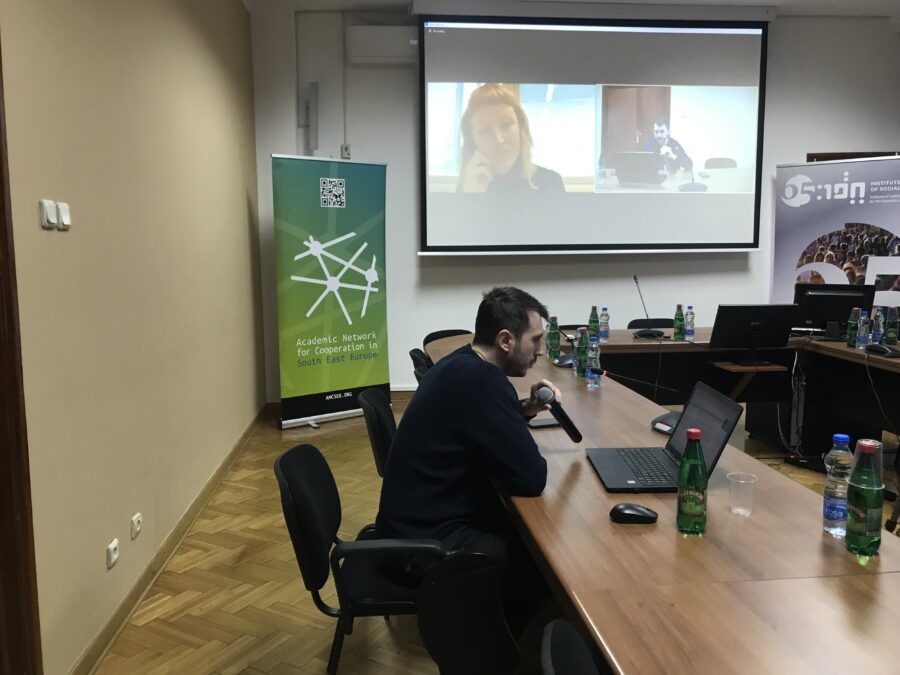Phenomenology can benefit from considering cases of neurodivergence in their own right. Considering autistic experiences can, in turn, help shape the phenomenological frameworks themselves (e.g. materiality in analyses of intersubjectivity), it was concluded by Sophie Boldsen in her lecture titled “Autistic intersubjectivity: critical lessons for future phenomenological research”.
In the lecture held on December 12th in the Grand Hall of the Institute of Social Sciences (via Zoom and in front of a live audience), a postdoctoral researcher in philosophy from Jyväskylä University, dr Boldsen, argued that social problems have been a persistent characteristic of autism from the 1940s (Kanner’s descriptions of autistic children) to the present day. However, a recent challenge to this perspective comes from proponents of the “double empathy thesis” (DET) and neurodivergence movement. According to DET, breakdowns in social understanding between autistic and non-autistic individuals arise from a mismatch in the ways they experience and navigate social spaces rather than solely attributed to impairments on the part of the autistic person.
In her presentation, Boldsen aimed to identify and discuss two crucial lessons derived from DET and neurodivergence that hold significant implications for the future of phenomenological autism research. Firstly, DET emphasizes the importance of phenomenological research engaging with the actual, subjective, and intersubjective experiences of autistic individuals in their full richness and nuance. This involves not only exploring typical but also atypical and divergent modes of social being on their own terms. Secondly, phenomenological frameworks and concepts used to analyze autistic perspectives must be open to critical self-reflection, revision, and expansion when confronted with experiences that diverge from classical phenomenological descriptions of subjectivity and its essential structures. Investigating autistic experiences without the shadow of epistemic injustice will help develop more precise phenomenological frameworks in the future, for example, by incorporating consideration of materiality when analyzing intersubjectivity.
Taking these lessons into phenomenological research allows for more comprehensive and accurate accounts of autistic life. Furthermore, it establishes a foundation for a phenomenological research program capable of fulfilling its structural ambitions in capturing subjectivity and intersubjectivity more fully. To illustrate these methodological principles and provide concrete examples for the discussion, Boldsen presented qualitative data from her PhD research project focusing on social connectedness among autistic youth.
Sophie Boldsen’s lecture is the fourteenth in the series of seminars on “Philosophy and Psychiatry” organized by the Center for Philosophy at the Institute of Social Sciences.

